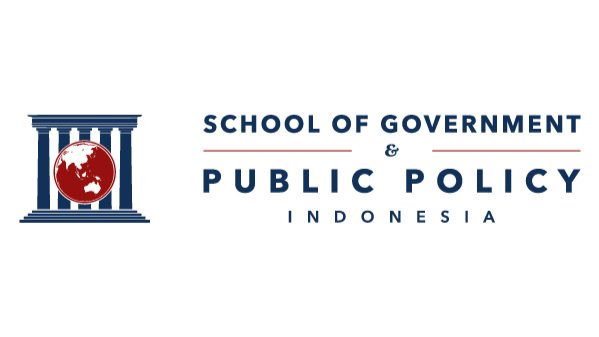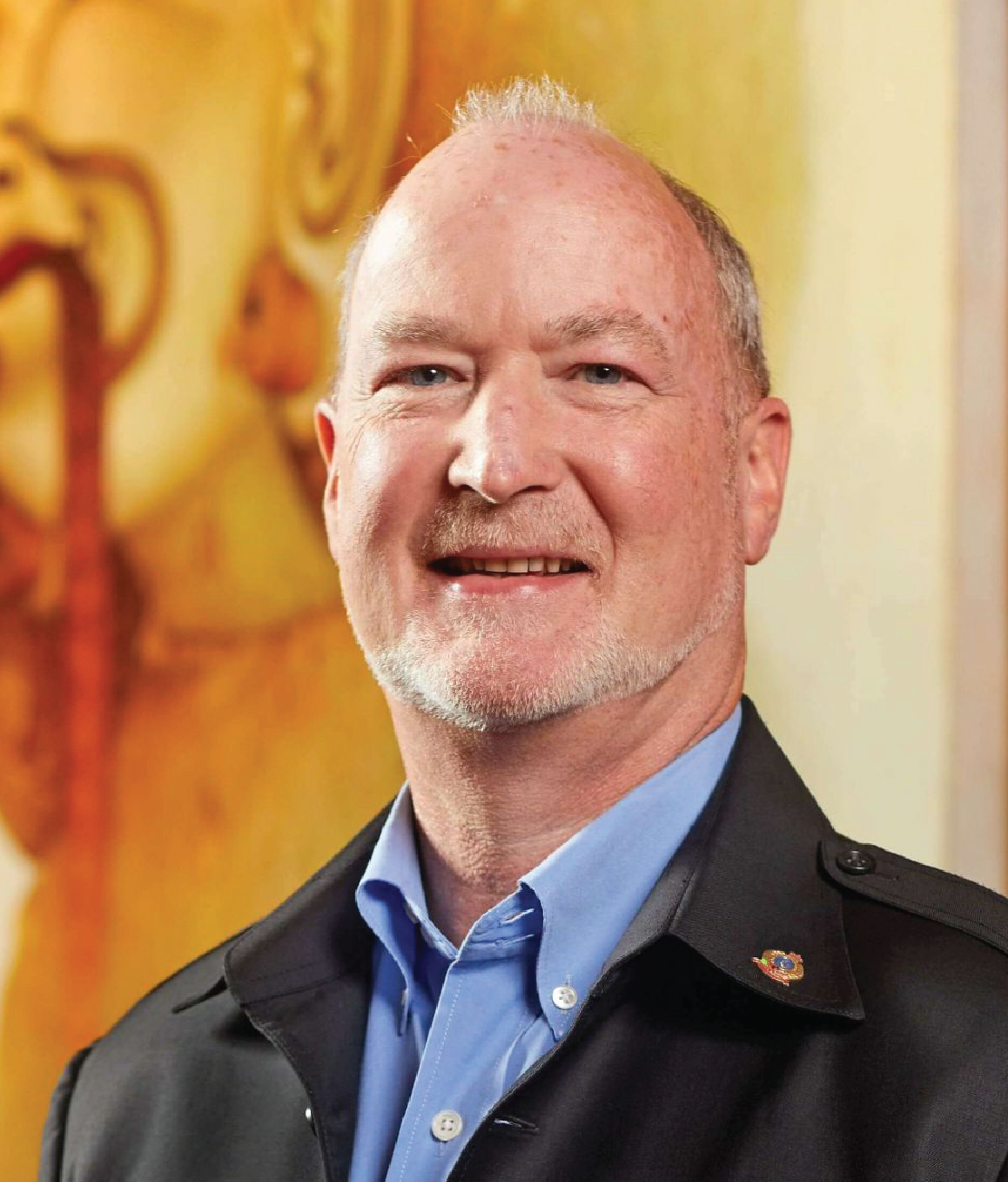
Blue Ocean Strategy Fellowship
About
Blue Ocean Strategy Fellowship (BOSF) for the Study of Public-Private Cooperation in Indonesia is a thought leadership program that aims to produce and promote new effective approaches and ideas to solve challenges to cooperation, innovation, and learning in and between the private and public sectors in Indonesia.
Organizing Partners
-

Sampoerna University is the first Indonesian university that offers an American-style higher education experience. SU aims to provide students with affordable access to education that meets the highest international standards.
-

The School of Government and Public Policy Indonesia is the first Indonesian public policy school to offer a full-time master’s program in English attuned to the practice and standard of international policy education. SGPP is the producer of the Endgame Podcast and the publisher of the Strategic Review Journal.
-

Blue Ocean Academy is a global training arm of the Blue Ocean Global Network, equipping organizations, governments, non-profits, start-ups, and individuals with the tools to design and implement blue ocean strategies.
Fellowship Co-Chairs
-
He has over 18 years of experience in higher education administration. He serves as Chair in a number of committees including the Greater Houston Partnership Energy Collaborative Workforce Committee, Consumer Energy Education Foundation, STEM Education Advisory Committee and Harmony Public Charter School Advisory Committee. Dr. Schott completed his doctorate in history from the Louisiana State University in 1995.
Blue Ocean Strategy
Blue Ocean Strategy is the simultaneous pursuit of differentiation and low cost to open new market space and create new demand. A blue ocean strategy creates and captures uncontested market space, thereby making the competition irrelevant. The strategy is based on the view that market boundaries and industry structures are not a given and can be reconstructed by the actions and beliefs of industry players.
Blue Ocean Strategy has also transformed the public sector at the local, state, and national level through high-impact, low-cost initiatives that cut across ministries, agencies, NGOs and municipalities. The blue ocean initiatives for national development are based on two principles – delivering high income through economic growth and integrated development, and enhancing the level of public well-being through greater security as well as social inclusion to close the social distance between various groups in society. Across the globe, governments are using blue ocean concepts to deliver high value at low cost.
Blue Ocean Strategy was conceived and developed from over 30 years of research by Chan Kim and Renée Mauborgne, professors of strategy at INSEAD and co-directors of the INSEAD Blue Ocean Strategy Institute in Fontainebleau, France. They are the authors global bestseller Blue Ocean Strategy, which has sold over 4 million copies and is recognized as one of the most iconic and impactful strategy books ever written. They are also the authors of Blue Ocean Shift, a bestseller on the New York Times and #1 on the Wall Street Journal, USA Today, and Los Angeles Times. To date, Blue Ocean Strategy and Blue Ocean Shift teaching materials have been adopted by over 2800 universities across the globe. Kim and Mauborgne are also the authors of the forthcoming book Beyond Disruption to be published by Harvard Business Review Press, May 2023.
To learn more about how Blue Ocean Strategy has shaped the strategies of companies and governments around the world, visit us here
The Distinguished Fellow
-
Dr. Sandiaga Salahuddin Uno, B.B.A.,M.B.A is one of the leading entrepreneurs in Indonesia and is actively involved in the Indonesian business community. Sandiaga was appointed as Minister of Tourism and Creative Economy by the President of the Republic of Indonesia since December 2020. In the same year, he also designated as Distinguished Research Professor from George Washington University.
Having a passion for empowering young entrepreneurs, he support the small and Medium Enterprises and providing micro loans to thousands of Indonesian people. Since 2005, he has been active as a social entrepreneur and has served as Chairman of several well-known associations and foundations in Indonesia.
Furthermore, Sandiaga is establishing a social movement in job creation through entrepreneurship and continues to focus on increasing job creation, especially in the Micro, Small and Medium Enterprises sector.
Minister of Tourism and Creative Economy of the Republic of Indonesia
Fellowship Tenure: 09/2023 - 04/2024
Fellowship Agenda
Mr. Sandiaga ‘Sandi’ Uno, a man of vision, brings a spirit of innovation and collaboration to Indonesia's economy. Mr. Sandiaga’s agenda for his term of office as Distinguished Fellow will focus on articulating the innovative economic concept known as Sandinomics. Sandinomics is not merely a series of policies, it reflects a holistic vision for economic well-being consisting of two main pillars: Maintaining Price Stability and Creating Jobs on a broad scale.
As the Deputy Governor of Jakarta (2017 – 2018) and later the Minister of Tourism and Creative Economy (2020 – current), Sandiaga's journey in embracing the core pillars of his economics—maintaining price stability and creating jobs—is an inspiring tale of collaboration.
As the Minister of Tourism and Creative Economy, Sandiaga demonstrated his commitment to public-private sector partnerships by inviting business leaders, creative minds, and those in the tourism industry to work together to create new value. By building an inclusive and innovative ecosystem, Sandiaga Uno elevated Indonesia's creative economy and tourism industry to new heights.
Through the OK OCE program, Sandiaga opened doors for small traders and entrepreneurs to access a broader market. This step not only created new job opportunities but also paved the way for creativity and innovation to flourish in the SME sector.
In an effort to optimize the tourism sector, Sandiaga built a collaborative network between the government, business stakeholders, and the community. This initiative not only supported the growth of the tourism industry but also created new job opportunities in various related sectors such as hospitality, restaurants, and tourism services.
Members of the public are cordially invited to hear how such initiatives inspired by the inclusive and innovative economic vision of Sandinomics can unlock a vast potential blue ocean in the employment sector while maintaining price stability. Our Distinguished Fellow, Sandiaga Uno, will reinforce the belief that close collaboration with the government and private sector is the key to creating a brighter and more competitive economic future for Indonesia.
-
Dr. (H.C.) H. Mochamad Ridwan Kamil, ST. MUD. (born in Bandung, October 4, 1971) is the Governor of West Java for the 2018–2023 period. Having a background as an architect, teacher, and social activist from Indonesia, he completed his education majoring in Architecture from ITB and graduated with a master's degree at the University of California Berkeley. After graduation, continued professional work in various firms in the United States. Professionally he has worked on more than 50 architectural and urban design projects in the Americas, the Middle East and Asia and with his firm has won competitions and awarded more than 20 times. Ridwan Kamil, for West Java, has a vision "The Realization of West Java as a Champion with Innovation and Collaboration (religious values, happiness values, fair values, collaborative values and innovative values)".
Governor of West Java
Fellowship Tenure: 02/2023 - 06/2023
Fellowship Agenda
Improving its 50 million people's livelihood is an extensive theme in West Java. One of the most significant gaps lies in village development. During the five years of Ridwan Kamil's reign as the governor, there has been massive effort and budget shifting to the village to bridge the gap and improve overall livelihood. The result is the successful reduction of highly underdeveloped and underdeveloped villages. This achievement is attributed to the efforts of the West Java Provincial Government, which focused on three main pillars of rural transformation: digital transformation, economic and social resilience, and infrastructure development.
Through digital transformation, the government aimed to improve access to information and communication technology, which could help improve the efficiency and effectiveness of local governance and promote entrepreneurship and innovation in rural areas. To create jobs and promote social cohesion, economic and social resilience is prioritized through community-based initiatives. Finally, the government invested heavily in infrastructure development, including roads, bridges, and other public facilities, to improve access to essential services and connect rural areas to urban centers.
All of these efforts were geared towards improving the lives and livelihoods of the villagers, with a particular focus on reducing poverty and inequality in rural areas. Through these initiatives, West Java has made significant strides toward rural transformation, hoping to create a more prosperous and sustainable future for all its citizens.
-
The BOSF Distinguished Fellow is Mr. Sakti Wahyu Trenggono, a dedicated and visionary leader who champions the sustainable transformation of Indonesia’s marine and fisheries sector. Mr. Trenggono’s agenda during his term as Distinguished Fellow will center on unlocking the potential of the Blue Economy to ensure long-term prosperity for coastal communities and the preservation of Indonesia’s marine ecosystems.
Serving as the Minister of Marine Affairs and Fisheries, Mr. Trenggono led bold policy reforms that redefined the nation's approach to ocean governance. His leadership focused on balancing economic growth with environmental stewardship, laying the groundwork for a marine economy that is productive, equitable, and sustainable.
Under his tenure, the Ministry introduced a Quota-Based Measurable Fishing policy, a pioneering approach to manage fish stocks based on science and fairness. By setting catch limits and promoting investment in fisheries logistics, Mr. Trenggono sought to prevent overfishing, ensure equitable access for small-scale fishers, and increase value-added processing across the archipelago.
Mr. Trenggono also emphasized marine conservation, expanding marine protected areas and enhancing surveillance against illegal, unreported, and unregulated (IUU) fishing. These initiatives not only safeguarded marine biodiversity but also fostered economic resilience in coastal communities dependent on healthy ecosystems.
Minister of Marine Affairs and Fisheries
Fellowship Tenure: 03/2025 - 09/2025
Fellowship Agenda
Indonesia, as one of the world's largest maritime nations, heavily relies on fisheries as a critical source of economic growth, employment, and food security. Despite its vast marine resources, unsustainable practices such as illegal, unreported, and unregulated (IUU) fishing, destructive fishing methods, and weak fisheries governance have significantly threatened marine biodiversity, economic stability, and the livelihoods of millions of coastal inhabitants.
Traditional regulatory measures have proven insufficient in addressing these persistent challenges, resulting in depleted fish stocks, economic instability, and ongoing socio-economic hardships within fishing communities. Recognizing the urgency and complexity of these issues, adopting an innovative and value-driven approach—such as the Blue Economy supported by the Blue Ocean Strategy (BOS)—can fundamentally improve fisheries management in Indonesia.
The Blue Economy promotes sustainable use of ocean resources to foster economic growth, improved livelihoods, and ecosystem preservation. By integrating quota-based fisheries management, technological innovations, transparency initiatives, and community-driven stewardship, Indonesia has the potential to achieve sustainability, economic prosperity, and community resilience simultaneously. These innovative pathways can significantly enhance fisheries governance, combat IUU fishing effectively, and ensure the long-term health of marine ecosystems and economic well-being of coastal communities.
Furthermore, this strategic shift demands multi-stakeholder collaboration, bold policy innovation, and strong leadership to scale impact across Indonesia’s diverse maritime regions. Through a shared commitment to sustainable practices and systemic change, the nation can unlock the full potential of its Blue Economy. This forum aims to catalyze such change, bringing together thought leaders, policymakers, and practitioners to explore forward-looking solutions and reaffirm our collective responsibility in Unlocking the Blue Economy for Sustainable Marine Ecosystem in Indonesia.

Upcoming Event:
UNLOCKING THE BLUE ECONOMY FOR SUSTAINABLE MARINE ECOSYSTEM IN INDONESIA
Keynote Speech by BOSF Distinguished Fellow:
Mr. Sakti Wahyu Trenggono, Minister of Marine Affairs and Fisheries
Date : 21th November 2025
Time : 15.00 – 18.00 WIB
Venue : Fairmont Hotel, Jakarta




